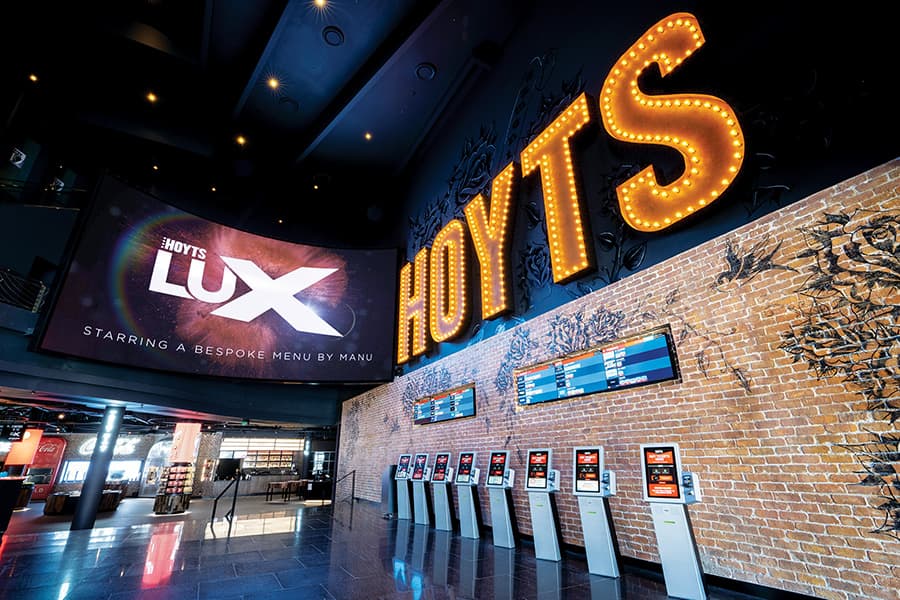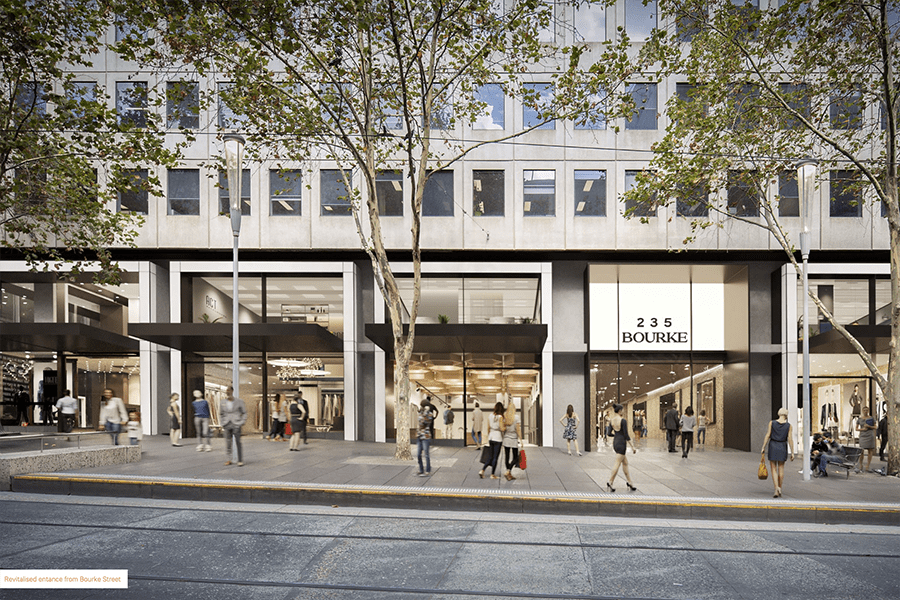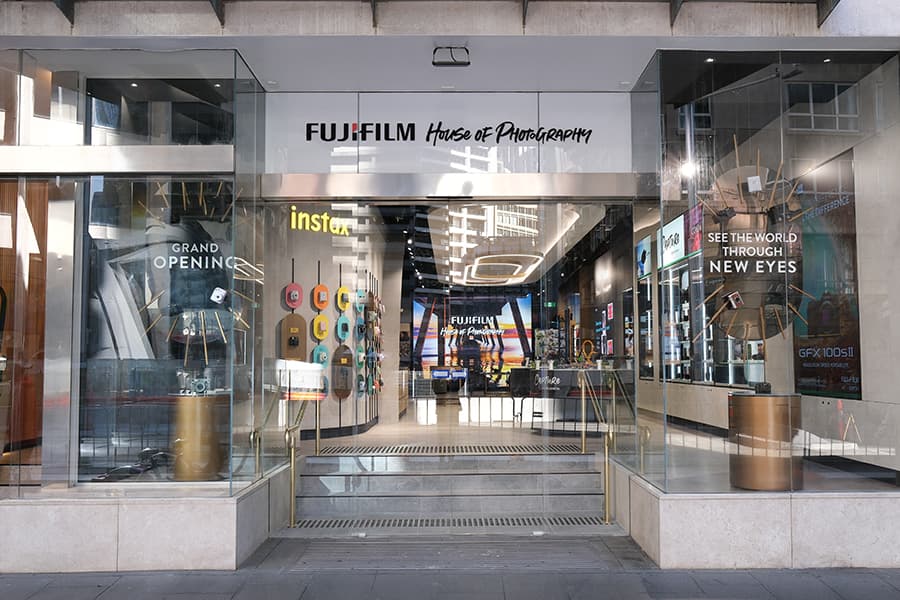
Damian is the President and CEO of The HOYTS Group, a role he has held since 2014. As part of the Chinese owned Wanda Group, which owns 12% of the world’s cinemas, Damian has overseen a dramatic re-investment program in the HOYTS cinema circuit.
Damian was Chairman of the Cronulla Sharks NRL team from 2013 – 2017, including the club’s first premiership in 2016. A former professional sportsman, he enjoyed a distinguished career in the NBL and represented Australia on more than 200 occasions in basketball, including three Olympic campaigns.
Damian is the President and CEO of The HOYTS Group, a role he has held since 2014. As part of the Chinese owned Wanda Group, which owns 12% of the world’s cinemas, Damian has overseen a dramatic re-investment program in the HOYTS cinema circuit.
Damian was Chairman of the Cronulla Sharks NRL team from 2013 – 2017, including the club’s first premiership in 2016. A former professional sportsman, he enjoyed a distinguished career in the NBL and represented Australia on more than 200 occasions in basketball, including three Olympic campaigns.
Can you tell us a bit about HOYTS Group?
HOYTS cinemas began in Australia in 1909. As Australia’s largest national cinema brand, today we operate 40 cinemas in Australia and 13 in New Zealand, with more than 400 screens. Collectively, we see more than 20 million admissions per annum.
Over the past six years, more than $300 million has been spent in upgrading the cinema experience with powered recliner seats in every cinema. In the process, HOYTS has grown market share and been recognised as the leader in cinema innovation in Australia.
HOYTS also owns and operates the iconic Val Morgan cinema and outdoor advertising company (VMO).
What impact have COVID-19 restrictions had on these operations in terms of trading hours and sales?
We saw a rapid rise of the COVID-19 virus in early March which led to us implementing significantly reduced capacities and social distancing measures in our cinemas on March 15. On March 22, the Australian government mandated that cinemas close as part of a range of measures to limit the spread of COVID-19. Prior to that, we had seen several Hollywood new release titles move to the back end of 2020 as cinemas were closing in major countries in the northern hemisphere.
We witnessed a large decline in visitor numbers from the beginning of March. The industry box office was down 47% on the same time last year. From March 22, HOYTS cinema revenue ceased entirely.
What are some of the challenges HOYTS has had to face during this period of closure?
The biggest initial challenge, once the cinemas were closed, was to effectively and appropriately communicate with all our staff. More than 2,600 employees had to be stood down. Our business has grown strongly in recent years on the back of capital investment in renovating our cinemas.
Equally, the cultural move to a strong customer-centric operating model was led by our frontline staff who are passionate about our business and our brand. It was a challenging time.
Secondary, without a stream of revenue, management turned its focus to other cost reductions across the business. A large focus of this has been with our landlords, as leases are one of our main fixed costs.
What are your thoughts on the government stimulus package and JobKeeper schemes?
The JobKeeper scheme has provided us with a method to ensure we can keep as many staff as possible and get the business up and running quickly once we re-open. At this stage there are not a lot of other specific stimulus benefits for cinema operators.
Do you think the government has done enough to assist the retail industry? If not, what would you like to see happen?
The government’s guiding set of principles on the negotiations between landlords and tenants does not directly apply to HOYTS as we turnover more than $50 million per year. However, it is a good start for ensuring that there be an understanding through this crisis that the pain needs to be shared between the parties. Our industry is in a unique position. Prior to the COVID-19 crisis, our industry generated a $2 billion annual turnover, employing about 12,000 people. Cinemas are a cultural institution – we are the number one out-of-home entertainment experience. However, since the mandated shutdown from government, our industry has no alternative means nor business model for revenue generation. In addition to this, we rely on a global supply chain, meaning we are dependent on countries such as the US, UK and China being ready to reopen around the same time that we are to ensure we see a solid line-up of movie content. While we understand the immediate public health necessity of cinema closures, we desperately need financial relief to maintain the viability, and survival, of our entire industry.
How is the business communicating – have you introduced any new technologies to engage with team members and customers?
HOYTS is continuing to engage with our customers through a variety of social media platforms. Customers are keen to know when we will re-open.
Staff communication has been a strong focus throughout this crisis. Across the HOYTS Group we utilise the Workplace by Facebook platform as a highly effective and immediate staff communication platform. Regular updates are provided to staff. Among these are frequent video business updates by me to all staff.
In your opinion, do you think shopping centre landlords have done enough in assisting retailers during the crisis?
Even though we were mandated by government to close our cinemas, there has been little assistance required from landlords. However, the code does state that the principles of the Code should nevertheless apply in spirit to all leasing arrangements for affected businesses, having fair regard to the size and financial structure of those businesses. To date, most landlords have been willing to work with us in good faith and under the spirit of the code.
What has been your experience with shopping centre landlords during this crisis?
We are in the process of negotiating lease agreements through this challenging time. We are anticipating a minimum of three months’ compulsory closure. Once we open it may take some time before our business ramps up to pre COVID-19 levels, depending on when the social distancing measures will be relaxed and when we can get access to new movies, given we are part of a global supply chain with respect to movie content.
In what ways can shopping centre landlords assist your business in the recovery phase?
Hopefully, our landlords will recognise that the cinema is a vital part of the social experience of shopping centres and helps drive footfall. We will need rent assistance during closure as well as in the re-building phase as we ramp up our business.
How will HOYTS cinemas adapt in response to COVID-19?
The COVID-19 crisis did not come with a business play book. Most businesses were faced with a scenario that was unimaginable. The concept of ‘social distancing’ is counter to most of the pleasurable pursuits humans have – travel, dining, socialising, shopping, sport and entertainment. Once we re-open we will need to ensure we can create an environment for the public that makes them feel safe and secure in our venues.
What are some of the strategies the business will put in place for recovery?
HOYTS is aiming to re-open in July. We understand this date is contingent on government approval. We also need the major global studios to have new movies for our customers.
When this happens, we will need to ensure we have an environment that is safe for our staff and our customers. We have created a 20-point safety guide list to achieve this.
What is your outlook for the retail economy over the next 12 months?
The sooner we can create a safe environment for people to begin to re-establish their normal life patterns, I have no doubt that retail and cinema will bounce back and bounce back strongly. There is a great line up of movies coming over the next few years. HOYTS has invested significant capital to renovate and build new cinemas that are world leading and provide a great customer experience.





















